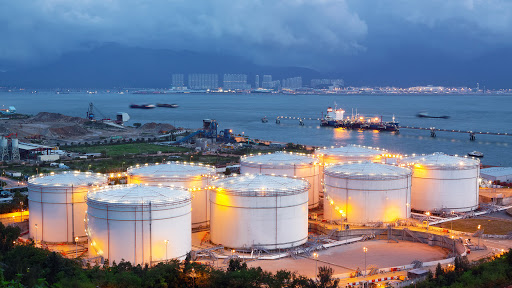In the “Oil Watch” section of this week’s EWR, published by IENE, special mention is made on the key role the role and absolute need of maintaining adequate storage for crude and oil products. More specifically IENE’s latest newsletter refers to IEA’s findings on the role of oil storage during the current oil industry crisis. The need for production cuts was outlined in IEA's latest Oil Monthly Report (April 2020) on account of the limited storage available worldwide.
In the "Oil Watch” section of this week’s EWR, published by IENE, special mention is made on the key role the role and absolute need of maintaining adequate storage for crude and oil products.
More specifically IENE’s latest newsletter refers to IEA’s findings on the role of oil storage during the current oil industry crisis. The need for production cuts was outlined in IEA's latest Oil Monthly Report (April 2020) on account of the limited storage available worldwide. Something which was clearly demonstrated in the case of USA on April 20 when Cushing ran out of space and WTI prices turned negative. In IEA's report detailed figures are published showing the huge demands on both onshore and offshore storage facilities. Out of 6.7 billion bbls global oil storage capacity the IEA estimated that at the end of January it was filled with 4.2 billion bbls representing 63% utilisation rate. But with demand falling sharply in March and April, while production stood almost intact, the extra storage capacity was filled up fast reaching almost 80% which in industry is assumed as the maximum operational capacity. Hence, the IEA warned that " estimated stock builds for 1H20 would lift combined crude stocks to within their operational capacity limits by mid -year"

In SE Europe, oil storage facilities are almost exclusively used for maintaining mandatory crude and oil product stocks and also for serving current refinery needs. Only Romania, Albania and Croatia and to a lesser extent, Greece and Turkey, maintain noteworthy facilities for storing oil production from land based or offshore production facilities. No real problems have yet been reported in relation to those facilities, stemming from yet to be disposed crude oil volumes.
On the other hand, as part of IEA’s requirements for the maintenance of strategic oil stocks, Greece and Turkey over the last 40 years, have built substantial storage facilities, which at the end of January 2020 stood at 4,225 thousand metric tons for Greece and 11,980 th. Mt for Turkey. Other countries in SE Europe, including Slovenia, Croatia, Romania, Bulgaria and Cyprus maintain emergency stocks equivalent to 90 days consumption in accordance with EU energy security requirements. According to latest information most refineries in the region report utilization rate above 75% on average, as a result of product demand contraction.




